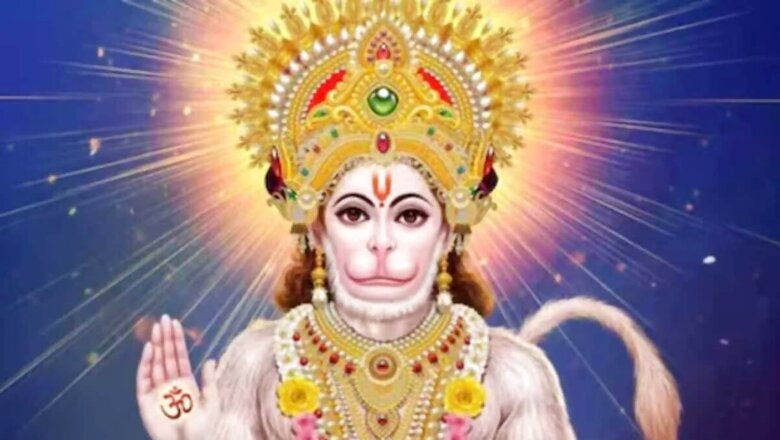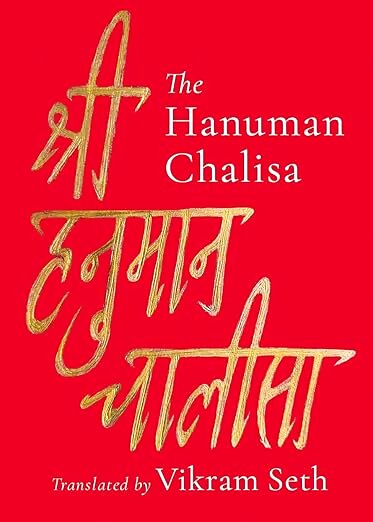
views
The Hanuman Chalisa, a sacred Hindu devotional hymn composed by the poet-saint Tulsidas in the 16th century, has been a spiritual cornerstone for countless devotees. Dedicated to Hanuman, an incarnation of Shiva and one of the central figures in the Ramayana, this hymn is revered for its profound invocation of strength, devotion, and divine grace.
Translation has played a pivotal role in shaping India’s literary and cultural development, bridging the gap between diverse cultures and languages and fostering closer connections among people. In our interconnected world, constant communication in various languages is facilitated by translation. This process not only provides insights into India’s rich heritage and intellectual traditions but also serves as a natural extension of valuable verbal communication. By crossing personal, linguistic, and cultural boundaries, translation enhances appreciation of diversity and promotes mutual understanding and empathy across cultures.
Vikram Seth, one of the most celebrated writers of our time, has authored three novels, including the widely regarded modern classics A Suitable Boy and The Golden Gate (a novel in verse), as well as two works of non-fiction and seven books of poetry, including an opera libretto and a collection of other libretti.
In his latest work, Seth undertakes the ambitious task of translating this sacred text, making it accessible to a wider, global audience. His bilingual edition, featuring the original verses in Devanagari and Roman script, alongside his English translations, is a thoughtful endeavour that bridges cultural and linguistic divides. The addition of title calligraphy adds a personal and artistic touch to this elegant volume.
‘Hail Hanuman, great wisdom’s ocean
The three worlds glow with your light and devotion’ (Excerpt from the book)

The Hanuman Chalisa (published by Speaking Tiger) consists of forty chaupais (quatrains) and two dohas (couplets) at the beginning and end, which extol Hanuman’s virtues such as strength, courage, wisdom, and unwavering devotion to Lord Rama. The hymn is believed to invoke divine intervention and protection for those who recite it with sincerity.
Translating literary texts, especially poetry, presents unique challenges. Such works are often complete and original, making it difficult to find equivalent expressions and literary elements in the target language. Since literature frequently employs both literal and metaphorical language, the translator must decide which aspects to faithfully reproduce. Also, the translator must consider the significance of certain cultural elements in the source text and the extent to which they should be conveyed in the translated text.
“This translation includes a phonetic transliteration, but no notes,” Seth writes in the introduction. His translation is a labour of love, reflecting a decade-long effort to capture the ‘mesmeric rhythm’ of the original Awadhi verses. His translation shines with a smooth and exuberant quality, retaining the incantatory pleasure of Tulsidas’s composition.
Seth further writes, “I translated the Hanuman Chalisa using both rhythm and rhyme because I wanted to convey something of the incantatory pleasure of the original.”
The use of rhyme and meter, faithful to the lyrical aspects of the original, showcases Seth’s formidable poetic skills and ensures that the devotional and spiritual essence of The Hanuman Chalisa is conveyed with authenticity and reverence.
A remarkable aspect of this translation is its dedication to Bhaskar, a character from Seth’s novel A Suitable Boy, who memorised the Chalisa as a child. This dedication highlights the personal and ideological significance of the hymn in Seth’s life, as well as its enduring relevance in contemporary times. It serves as a subtle yet powerful reminder of the inclusive spirituality that The Hanuman Chalisa embodies, offering solace and inspiration amidst an era marked by ideological conflicts and rising intolerance.
Vikram Seth’s work transcends mere translation; it is an invocation of the spiritual and transformative power of Lord Hanuman. In Hinduism, Hanuman is revered not only for his devotion to Lord Rama but also for his mastery over the senses and elements of nature. Reciting the Hanuman Chalisa is seen as a way to align oneself with one’s dharma (life purpose) and seek blessings for physical and mental well-being, wisdom, and protection against misfortune. The text serves as a guide to mastering one’s senses, symbolising the control and dedication required to overcome life’s distractions and challenges.
Vikram Seth’s translation of The Hanuman Chalisa stands as a significant literary and spiritual achievement. The result is a flawless translation that retains the magical incantatory quality of the original Awadhi, making The Hanuman Chalisa accessible to millions in English.
This bilingual edition is not just a valuable addition to religious literature but also a source of inspiration and comfort, ensuring that the timeless wisdom of the Hanuman Chalisa continues to uplift and guide readers for generations to come.
Ashutosh Kumar Thakur is a Management Professional, Literary Critic and Curator based in Bangalore. Views expressed in the above piece are personal and solely that of the author. They do not necessarily reflect News18’s views.



















Comments
0 comment